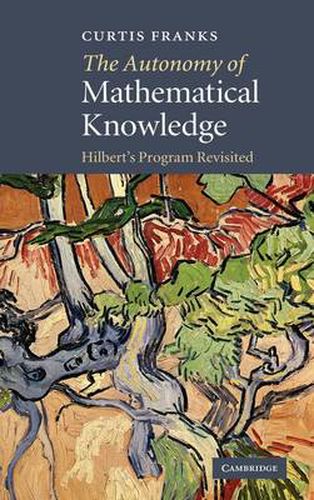Readings Newsletter
Become a Readings Member to make your shopping experience even easier.
Sign in or sign up for free!
You’re not far away from qualifying for FREE standard shipping within Australia
You’ve qualified for FREE standard shipping within Australia
The cart is loading…






Most scholars think of David Hilbert’s program as the most demanding and ideologically motivated attempt to provide a foundation for mathematics, and because they see technical obstacles in the way of realizing the program’s goals, they regard it as a failure. Against this view, Curtis Franks argues that Hilbert’s deepest and most central insight was that mathematical techniques and practices do not need grounding in any philosophical principles. He weaves together an original historical account, philosophical analysis, and his own development of the meta-mathematics of weak systems of arithmetic to show that the true philosophical significance of Hilbert’s program is that it makes the autonomy of mathematics evident. The result is a vision of the early history of modern logic that highlights the rich interaction between its conceptual problems and technical development.
$9.00 standard shipping within Australia
FREE standard shipping within Australia for orders over $100.00
Express & International shipping calculated at checkout
Most scholars think of David Hilbert’s program as the most demanding and ideologically motivated attempt to provide a foundation for mathematics, and because they see technical obstacles in the way of realizing the program’s goals, they regard it as a failure. Against this view, Curtis Franks argues that Hilbert’s deepest and most central insight was that mathematical techniques and practices do not need grounding in any philosophical principles. He weaves together an original historical account, philosophical analysis, and his own development of the meta-mathematics of weak systems of arithmetic to show that the true philosophical significance of Hilbert’s program is that it makes the autonomy of mathematics evident. The result is a vision of the early history of modern logic that highlights the rich interaction between its conceptual problems and technical development.